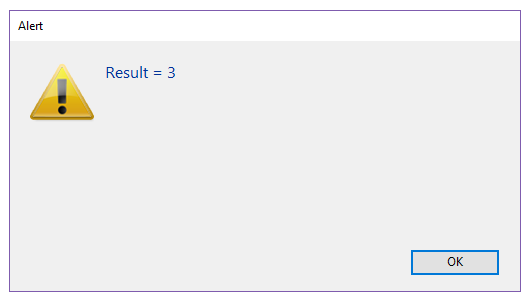This is the legacy 4D documentation web site. Documentations are progressively being moved to developer.4d.com
 Formula from string
Formula from string
| Formula from string ( formulaString ) -> function result | ||||||||
| Parameter | Type | Description | ||||||
| formulaString | Text |

|
Text formula to be returned as object | |||||
| function result | Object |

|
A native object containing the formula | |||||
Formula from string creates a formula object based upon the formulaString. formulaString can be as simple as a single value or complex, such as a project method with parameters.
This command is similar to Formula, except that it handles a text-based formula. In most cases, it is recommended to use the Formula command. Formula from string should only be used when the original formula was expressed as text (e.g., stored externally in a JSON file). In this context, using token syntax is highly advised (see the Using tokens in formulas page and the Parse formula command).
Note: Because local variable contents can not be accessed by name in compiled mode, they can not be used in formulaString. An attempt to access a local variable with Formula from string will result in an error (-10737).
The following code:
C_TEXT($textFormula)
C_OBJECT($f)
$textFormula:=Request("Please type a formula")
If(ok=1)
$f:=Formula from string($textFormula)
ALERT("Result = "+String($f.call()))
End ifwill create a dialog accepting a formula in text format,

and execute the formula:

Product: 4D
Theme: Formulas
Number:
1601
Created: 4D v17 R3
Renamed: 4D v17 R6 (Formula from string)
4D Language Reference ( 4D v19)
4D Language Reference ( 4D v19.1)
4D Language Reference ( 4D v19.4)
4D Language Reference ( 4D v19.5)
4D Language Reference ( 4D v19.6)
4D Language Reference ( 4D v19.7)
4D Language Reference ( 4D v19.8)

 Using tokens in formulas
Using tokens in formulas
 formula.source
formula.source
 formula.apply( )
formula.apply( )









